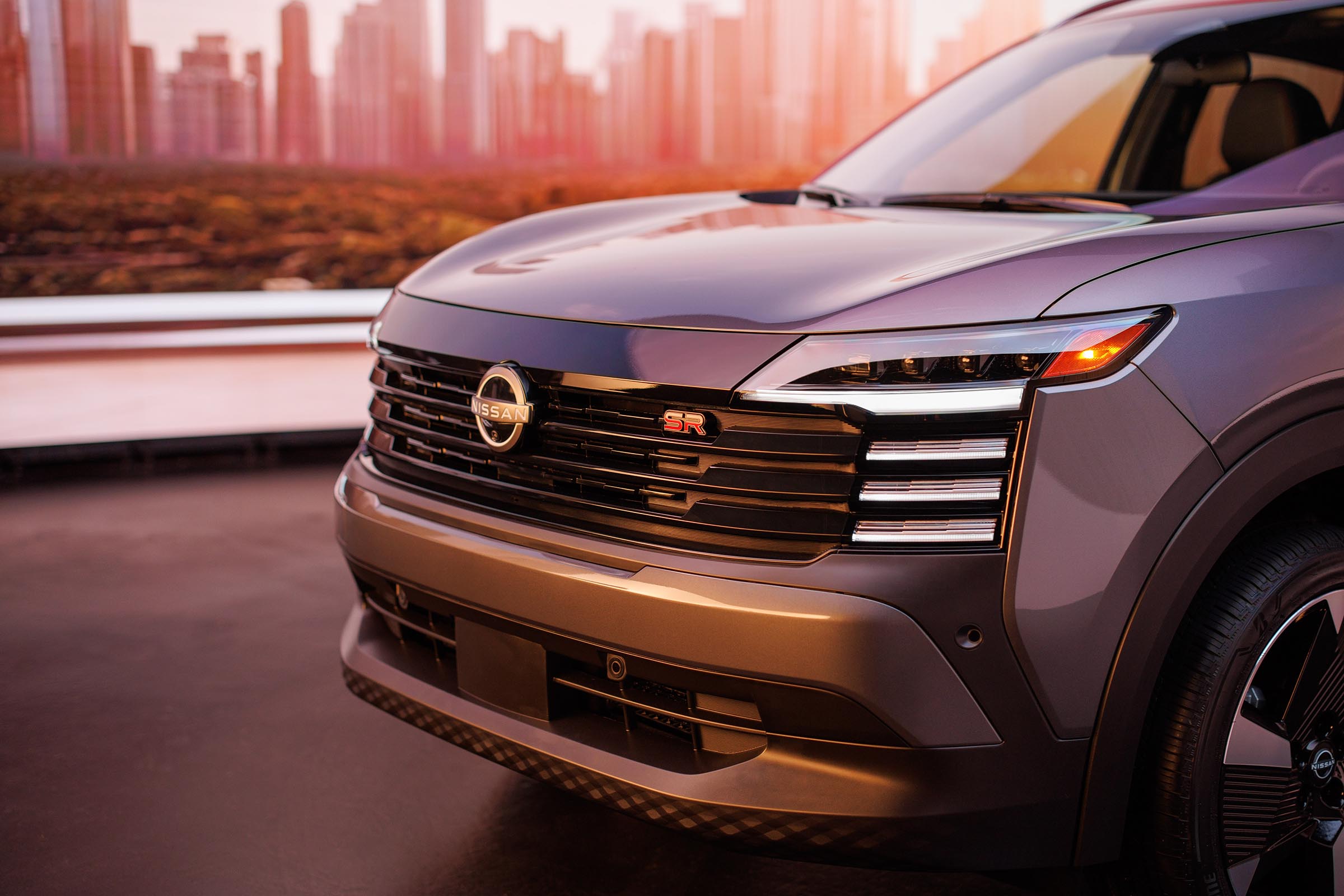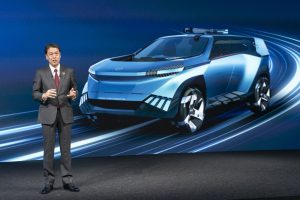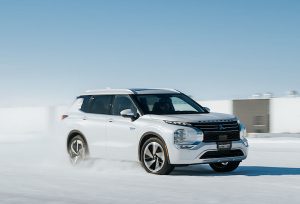Plans call for collaboration on new models for the U.S. market
Despite having been part of the same alliance for since 2016, when Nissan acquired a 34% stake in Mitsubishi Motors, there’s been little indication of their alliance in the U.S. market. The exception is the Mitsubishi Outlander, which is based on the Nissan Rogue.
But that’s about to change according to Nissan’s three-year plan, announced late last month. With an assist from Mitsubishi, Nissan aims to refresh 78% of its products in the next three years as plug-in hybrids and battery-electric models take on greater importance.
WHAT’S COMING

The battery-electric Nissan Ariya platform could serve as an EV platform for future Mitsubishi models.
The product mix will include both new nameplates and redesigned exiting ones. Nissan’s plans call for fielding 30 new models in three years, with 16 being electrified vehicles.
While Mitsubishi will field a new EV based on Nissan’s battery-electric Ariya platform, Nissan could get a Mitsubishi-developed plug-in hybrid driveline, possibly from the Mitsubishi Outlander PHEV. The Outlander PHEV accounted for 6,681 of the 49,182 Outlanders Mitsubishi sold in the U.S. in 2023. It’s Mitsubishi’s bestseller in this market. Certainly, this would make it a more cost-effective choice for a new Nissan vehicle.
The plan would also yield a new pickup truck, which the two automakers are jointly developing and plan to build in Mexico. Speculation is the new truck would replace the current Nissan Frontier and Mitsubishi Triton – the latter not imported here due to the 25% Chicken Tax tariff. Working together would give the alliance a stronger footing in the part of the pickup market dominated by Toyota, Ford and General Motors.
HOW IT COULD HAPPEN
Nissan hopes to achieve cost parity between EVs and internal combustion vehicles by 2030 by utilizing innovative product development and manufacturing strategies for those next-generation EVs. Tapping Mitsubishi’s engineering is part of that strategy.
Since the arrest of former Chairman Carlos Ghosn in 2019, Nissan’s worldwide sales have fallen to 3.7 million units from 5.52 million units, according to Automotive News, with a profit margin of 6%, almost half of Toyota’s 11%.
Nissan’s EV sales reached a record of 146,300 units worldwide in 2022, declining to 138,500 units in 2023. Hybrid gas-electric sales have proven far more robust. Its e-Power hybrids, not sold in the U.S., increased to a record 381,800 units in 2023, up from 232,768 vehicles in 2022.
The numbers reflect a worldwide trend, as consumers embrace hybrids as an interim vehicle before aiming to drive a pure battery electric vehicle.






0 Comments